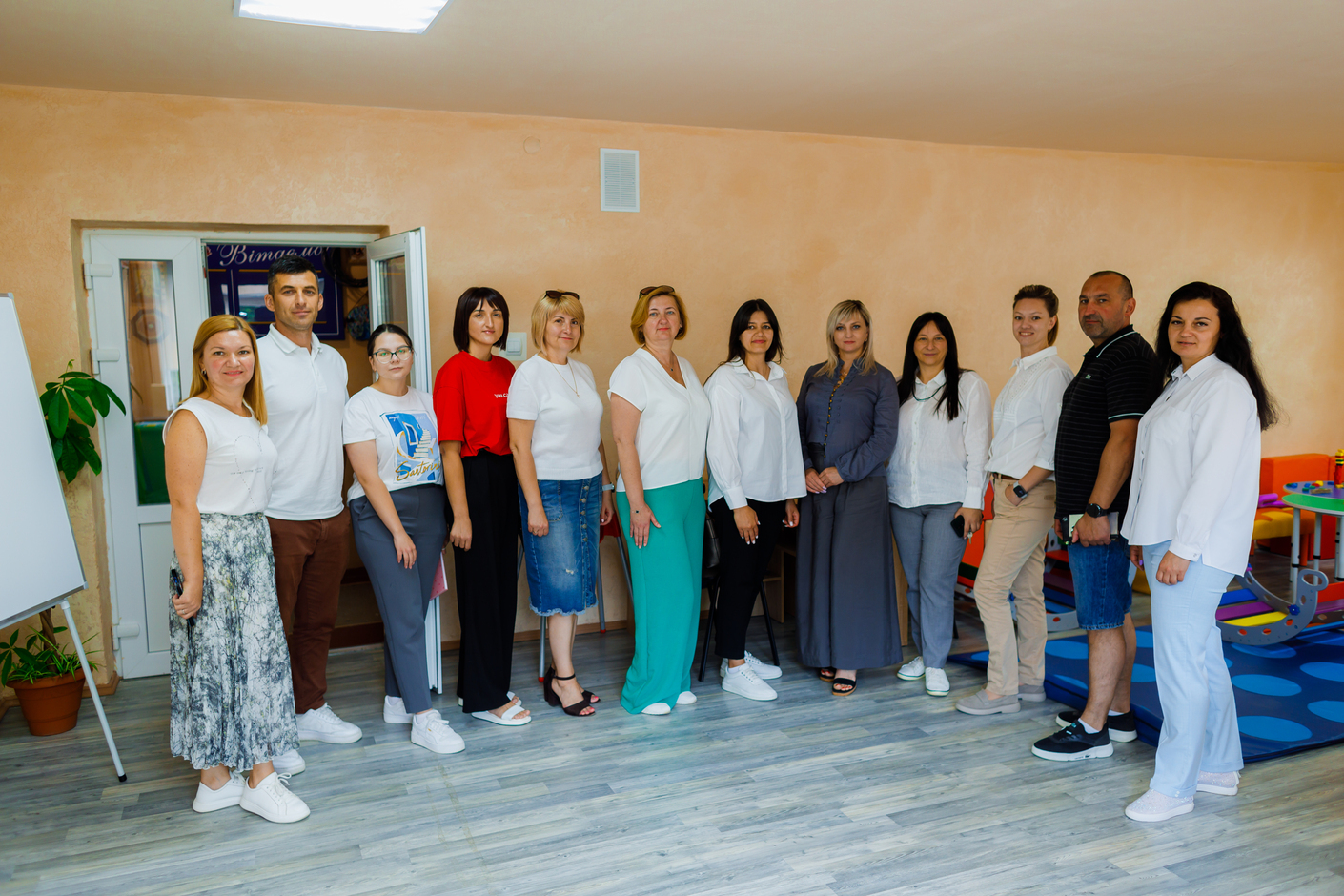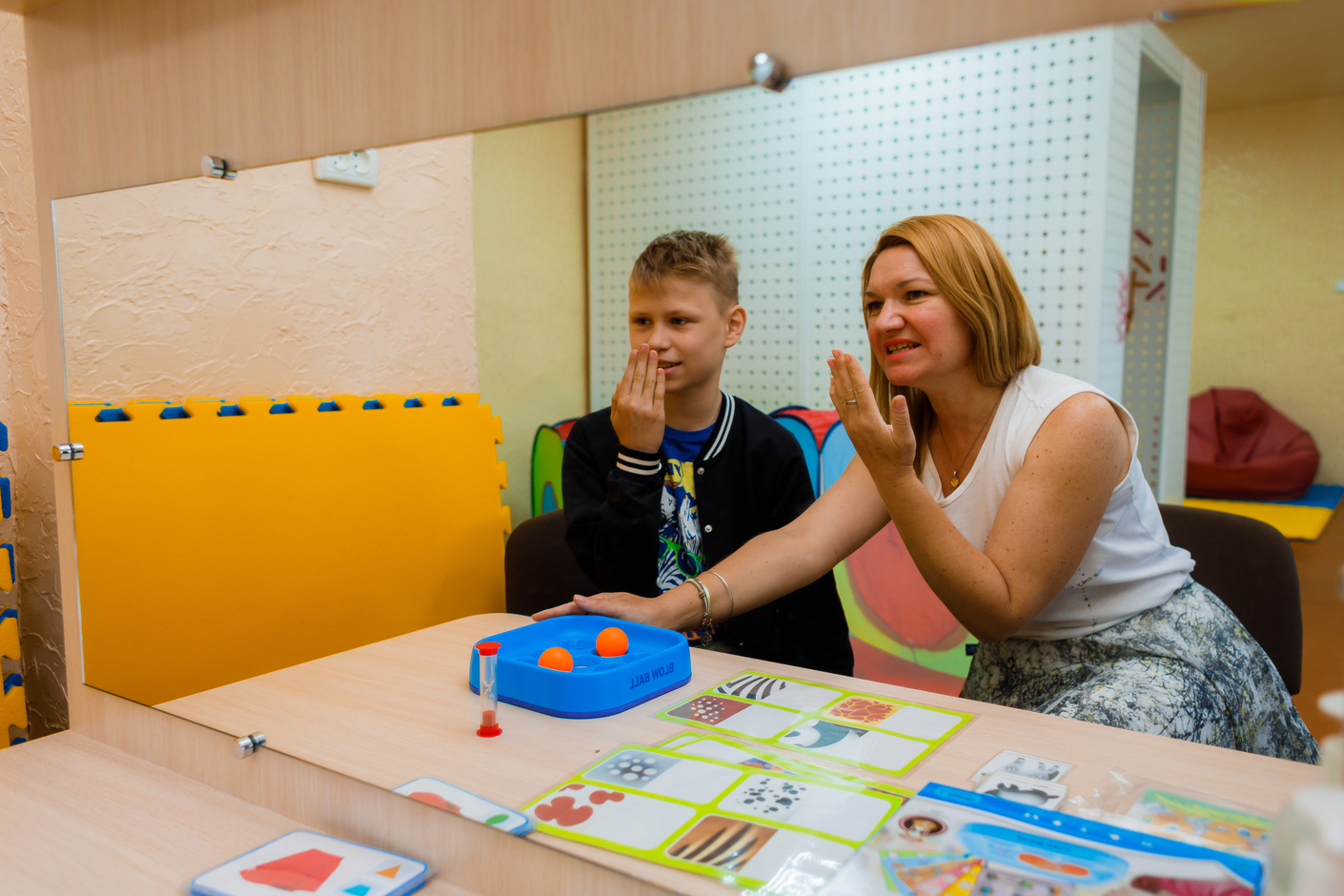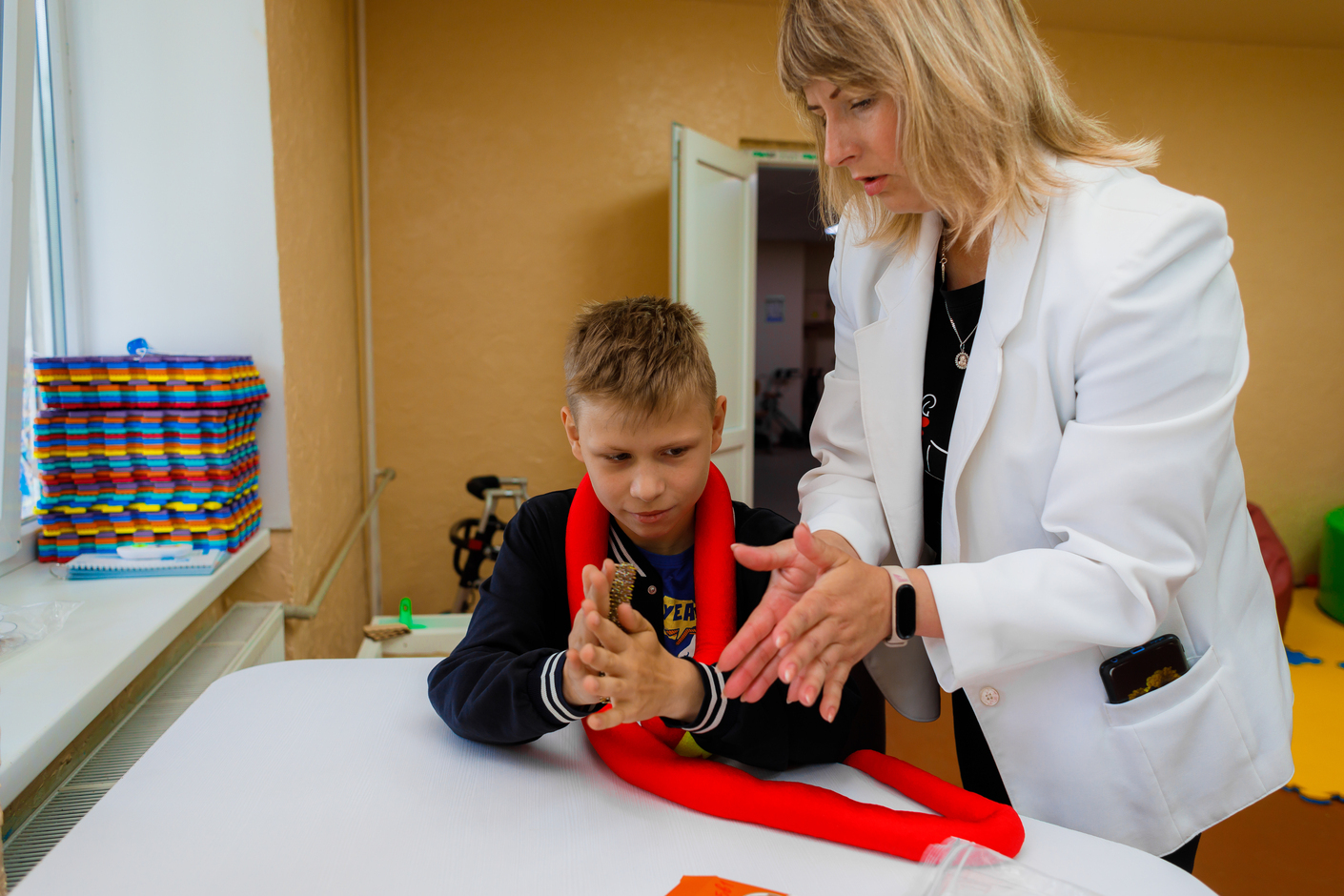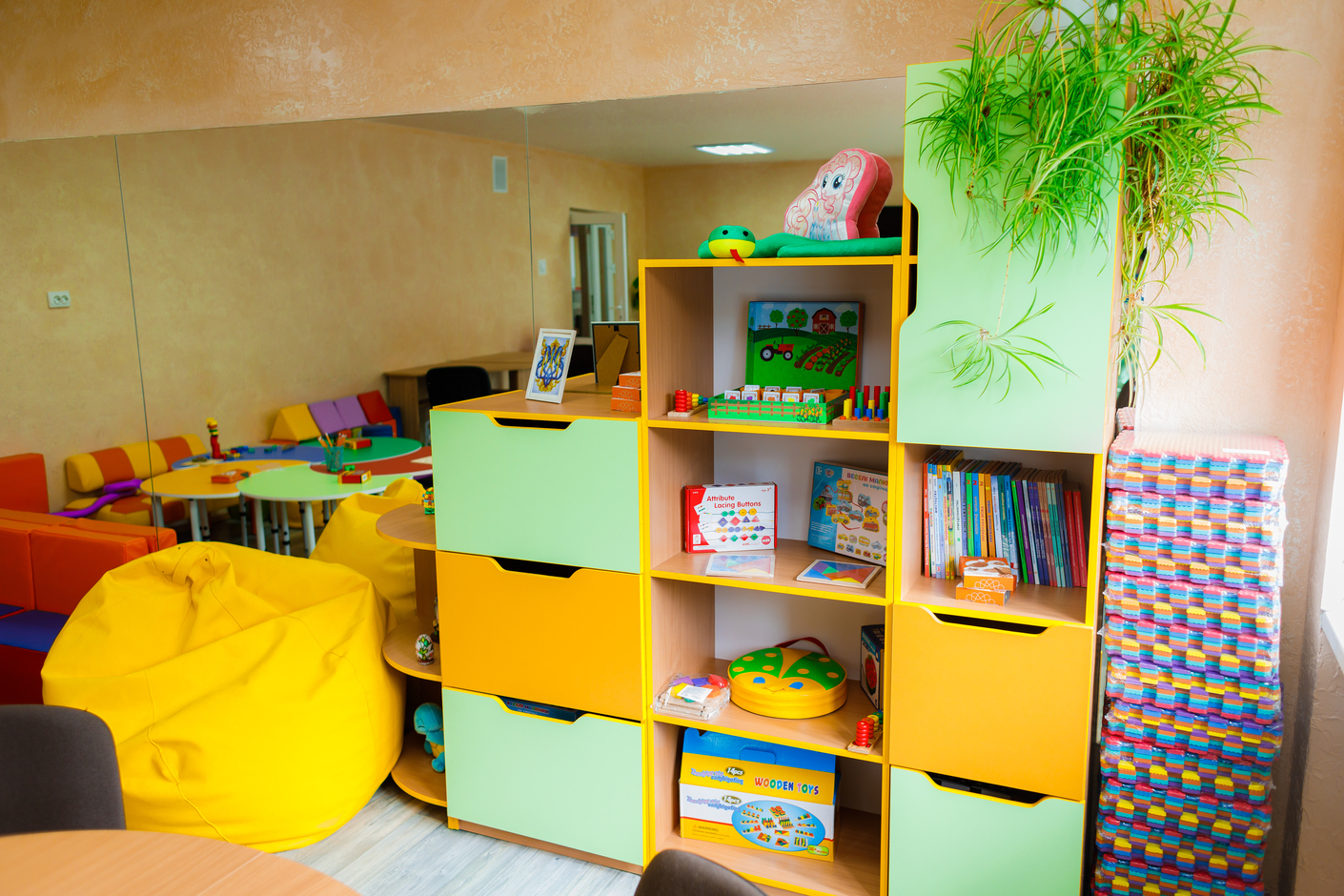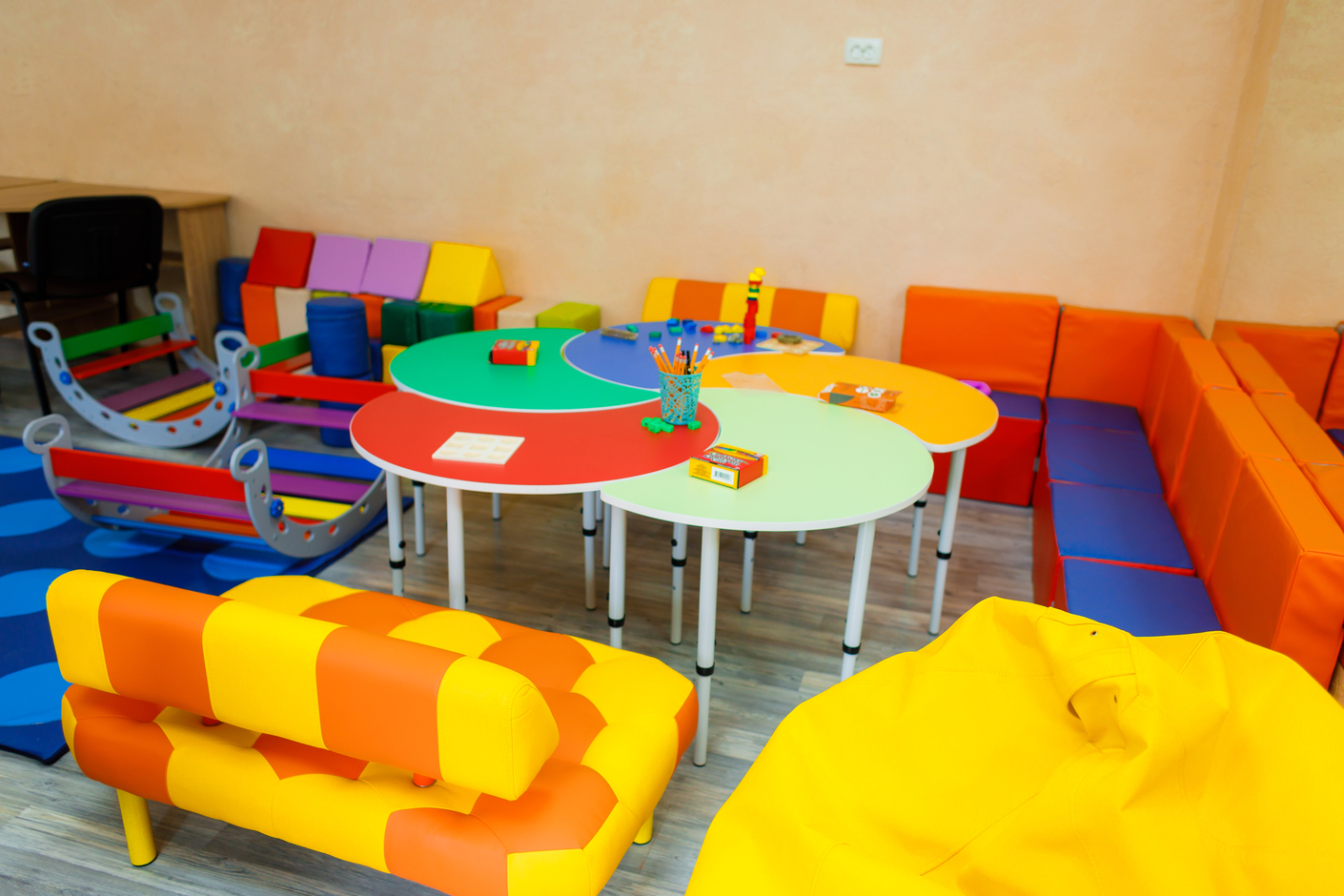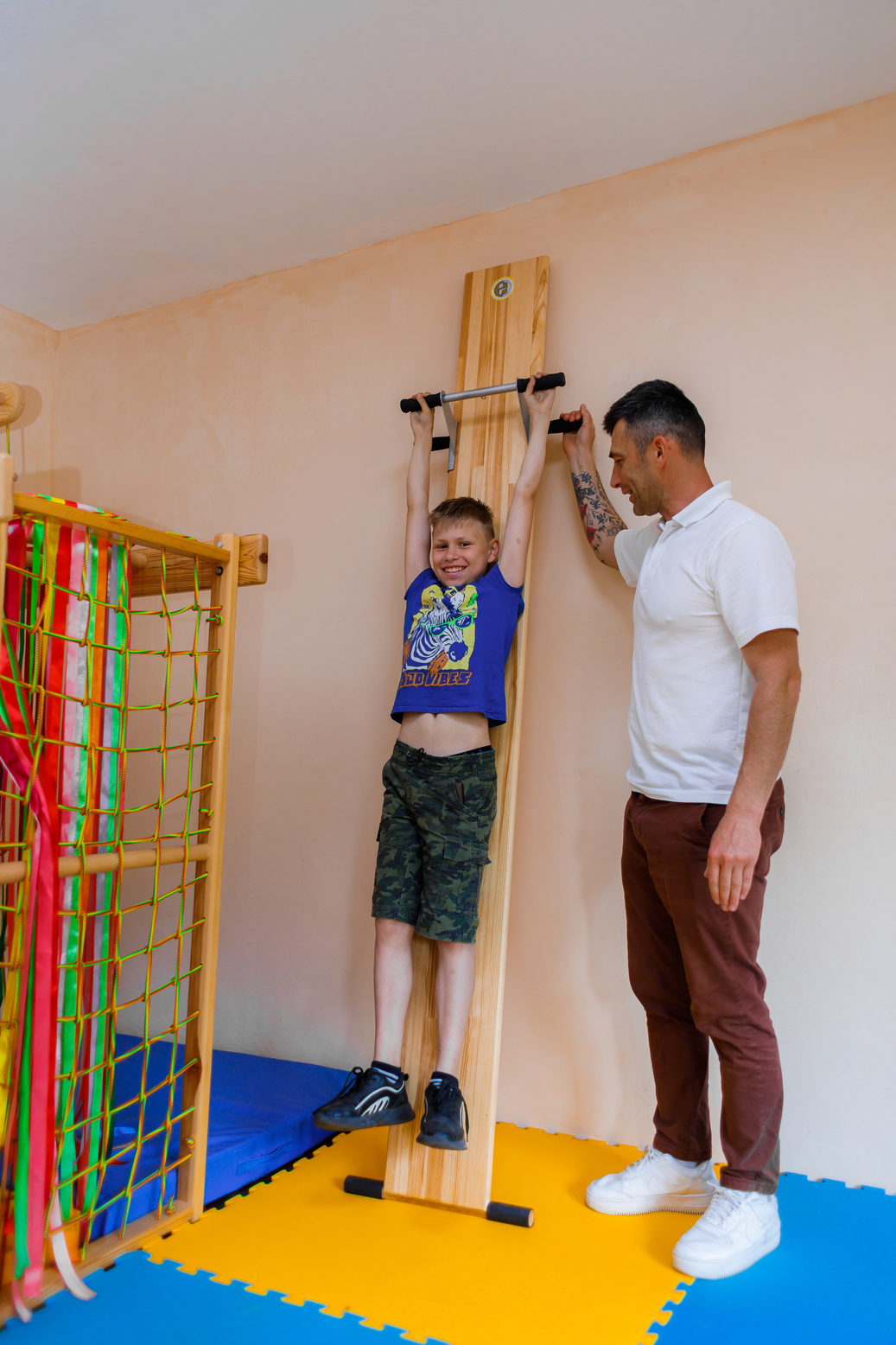Club for parents of children with special educational needs operates for two communities in Tysmenytsia. How and why
The inclusive resource centre in Tysmenytsia, Ivano-Frankivsk region, was one of the first in the region. This was in 2015.
Soon afterwards, the Yamnytsia community left the newly formed Tysmenytsia community.
‘We signed a cooperation agreement immediately because we could not leave the children without the necessary services. Besides, we have been close friends for a long time and work well together. The question of whether to continue this cooperation simply did not arise,’ says Lesia Vasylyk, Director of the Municipal Institution ‘Inclusive Resource Centre’ of the Tysmenytsia City Council in the Ivano-Frankivsk region.
Over time, the communities participated in the Swiss-Ukrainian DECIDE project, whose experts offered to facilitate cooperation between the communities, either by setting it up or by expanding it. The idea of creating a club for parents of children with special educational needs (SEN) had been discussed for a long time. The aim was to provide parents with ongoing support and assistance with various issues related to raising their children, and to create a space where they could find support and relief.
The idea was presented to the DECIDE project experts, who supported it and helped two communities establish cooperation. In particular, they helped the communities sign an additional cooperation agreement in the form of a joint project.
See below for details of how it happened and the benefits it offers.
About the Inclusive Resource Centre and the idea of expanding community cooperation
Five specialists work at the Inclusive Resource Centre (IRC): a speech therapist, a psychologist, a defectologist, a rehabilitation specialist, and a director.
More than 10,000 children under the age of 18 live in the area served by the centre, and they are all eligible to receive IRC services if necessary. Currently, more than 273 children are registered with the centre and receive ongoing assistance and support from specialists.
IRC consultant during classes
When the City Council invited the IRC director to participate in the DECIDE Project, she was clear on two points: the collaboration should involve the Yamnytsia community, and it should focus on the parents’ club.
The first reason is that many children in Yamnytsia have special educational needs and require support, as do their parents.
‘When we started working together in 2019, there were six pupils with SEN in schools and two children in pre-school institutions in our community. In the 2024–25 academic year, this number had increased to 11 and four respectively. This is a significant number for our community because we only have 1,334 children aged 2 to 18,’ says Khrystyna Vladyka, chief specialist at the Education Department of the Yamnytsia Village Council.
The second reason for setting up a parents’ club is that it is simply essential; it contributes to almost half of the success of helping a child.
Despite being equidistant from Tysmenytsia and Ivano-Frankivsk, the Yamnytsia community gladly accepted the proposal. Additionally, there are good transport links between the communities. They therefore began preparing the necessary documents.
‘It might be more convenient for us to find a closer IRC, but since we have established a good working relationship based on mutual understanding and support, there is no point in changing anything. Even if this IRC does not have the necessary specialists, they can recommend where we can find them,’ says Khrystyna Vladyka.
The DECIDE experts explained the advantages to communities. They showed how communities can support each other. For example, if one community lacks a certain service, it can turn to a neighbouring community for support. Communities can also apply for grant projects together or create joint initiatives with co-financing.
The communities have been cooperating for a long time and only see advantages in this. In general, cooperation with the IRC focuses on five communities. The club of parents of children with SEN, in cooperation with the Yamnytsia community, is a natural extension of this cooperation.
‘The IRC specialists are always ready to support families in our community. As part of the psychological and pedagogical support team, they always attend meetings. Currently, we most need speech therapists, so the IRC specialist is also helping children in our community. We are very pleased with our comprehensive cooperation and would like to see it expanded,’ says Khrystyna Vladyka.
Eventually, with the help of experts from the DECIDE project, the Tysmenytsia and Yamnytsia communities drew up a cooperation agreement in the form of a joint project, which the two community leaders then signed.
‘We reminded each of our community’s school principals that we have a cooperation agreement with the Tysmenytsia IRC, and we informed them about the parents’ club. If teachers notice, for example, that parents are reluctant to acknowledge their child’s behavioural problems, oddities or nosologies, they are advised to visit the IRC with their child and join the club if they wish,’ says Khrystyna Vladyka.
What is the parents’ club, and why it is important
‘Why a parents’ meeting? We work directly with children with SEN and discuss their problems with teachers at support team meetings. Meanwhile, parents are often excluded. They are left alone with their concerns and do not always have anyone to talk to. This can make them feel isolated, particularly if their child has just been diagnosed. They have no idea where to turn or what to do. Most of them do not accept the diagnosis and look for ways to refute it. Sometimes parents need to be brought back down to earth and helped to accept their child so they can start working in the right direction without wasting time,’ explains Lesia Vasylyk.
IRC consultant during classes
According to a study by Disability Rights International (2022–2023) involving mothers raising children with intellectual disabilities and autism, 71 per cent of the mothers were not married (either single or divorced). In most families, it is usually the woman who cares for children with disabilities on her own. Fathers often leave such families. Ms Lesia’s many years of experience confirm this.
‘Single parents (mothers or fathers) with children who have special educational needs need even more support, which we strive to provide. Many of the mothers have become friends through our club’s activities. They go on holiday together, share useful advice for their children and support each other,’ says the IRC director.
Parents of children with SEN often need help from outside specialists, such as lawyers, to register their child’s disability properly. Such meetings can also be arranged through the club.
‘For example, when we invited a lawyer, the parents had lots of questions. We planned a two-hour meeting, but he ended up staying with us from morning until lunchtime, answering all their questions. This is really important,’ says Lesia Vasylyk.
Small interest groups of up to eight people are organised within the club so that everyone can receive attention. Specialists in various fields, such as paediatricians and psychiatrists, are also invited to participate.
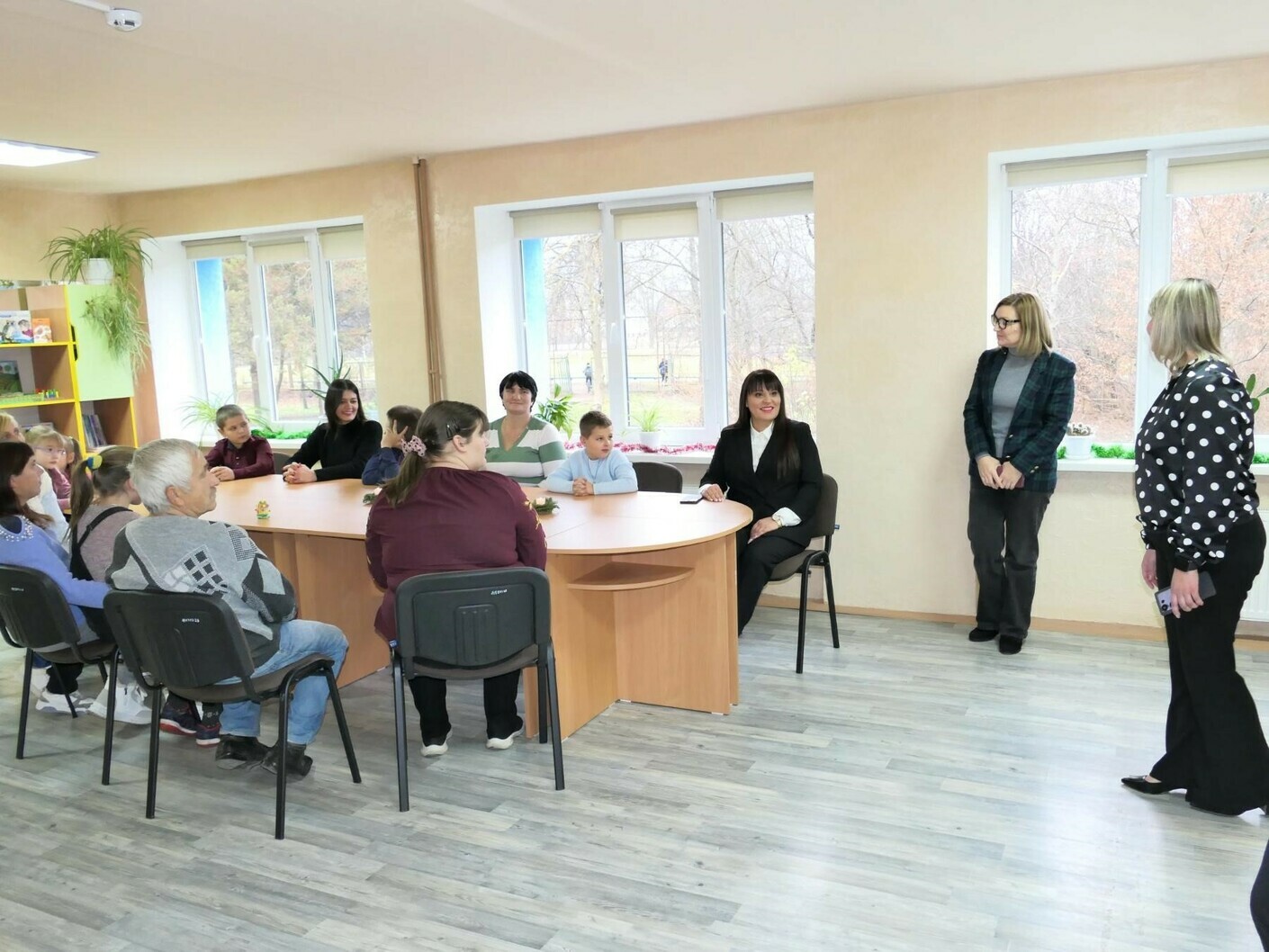
Club meeting
Parents often simply want to talk to each other and a psychologist to receive support and understanding. There is also high demand for such meetings.
In fact, communities that passed the competitive selection process and signed cooperation agreements with other communities received a mini-grant of UAH 130,000 from the DECIDE project. This is one way in which the Project supports and encourages communities to implement joint initiatives aimed at developing education.
These funds were used to renovate the meeting space at the IRC, as well as to purchase all the necessary items, including a round table, chairs, a computer and stationery.
Purchased equipment
And to purchase equipment for children, allowing specialists to work with them while their parents are at meetings. After all, parents often have no one to leave their children with. Therefore, the specialists prepare quests and interesting entertainment activities.
Purchased equipment
‘When we realised that it was working and that the children were happy to stay with the specialists rather than bother their parents, we tried to organise art therapy sessions for the parents. Our psychologist is always present, and we also invite an artist. It is very therapeutic – it opens people up and has a calming effect. When we draw together, communication happens effortlessly. The process is easy and simple. This is the easiest way to talk about difficult and painful things. The mothers really liked it. We have many similar initiatives that we plan to implement gradually,’ says Lesia Vasylyk.
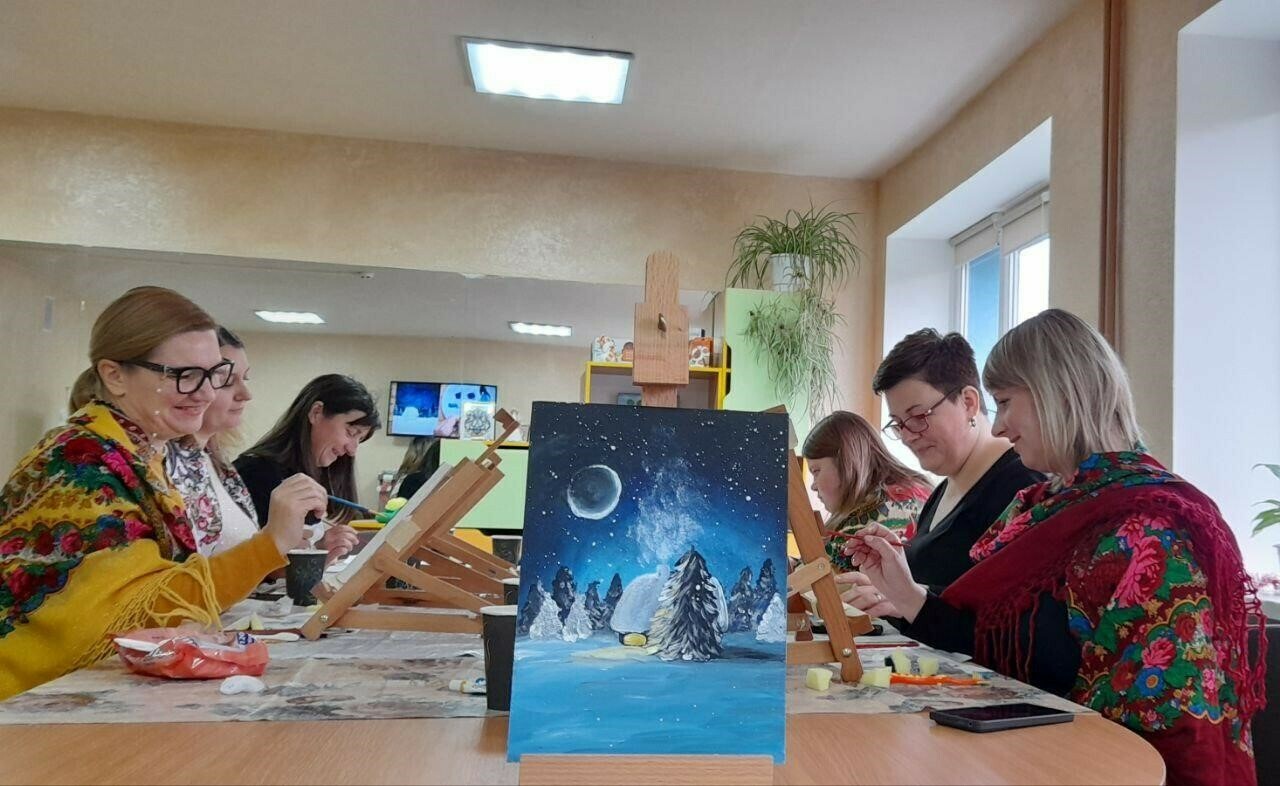
During an art therapy session
The best results: children who feel accepted and loved
‘The best result of our work is when children are accepted and loved by their parents. For instance, we have two families registered with us, one from Yamnytsia and one from our community, whose parents are currently serving in the military. In one of these families, the boy was given a diagnosis while his father was at war. It was clearly very difficult for them because the circumstances were already challenging. The father reacted aggressively. We worked with him for a long time, proving that it is possible to live a normal life with this diagnosis and socialise the child. We advised the military father from the other family on which specialists to contact and where to go for help with post-traumatic stress disorder. The father listened. So we do work with both children and parents,’ says the IRC director.
IRC consultant during classes
Another story is about two mothers of children with special educational needs who enrolled at a teacher training college to receive an education and become teaching assistants. This would enable them to support their own children, as well as others, if they wished.
‘If you seek professional help in good time and work with children, you can often achieve incredible results. Parents in our community are, of course, happy and grateful. However, we still encounter resistance quite often. For example, at the school where I work, there was a girl who needed additional support in the form of a teaching assistant and remedial programme. But her grandmother, who also worked at the school, was stubbornly insistent that everything was fine with her granddaughter,’ says Khrystyna Vladyka.
The psychologists in the Yamnytsia community who provide remedial and developmental services are also satisfied with the level of cooperation. This is because they often consult with specialists from the inclusive resource centre about how to work with certain children.
‘Our community is small. We simply do not have the capacity to set up and run an IRC in our area. Besides, why would we need to? We have nearby specialists with extensive experience of working with children with SEN and their families,’ says Khrystyna Vladyka.
Both are convinced that communities can only strengthen each other through cooperation. Exchanging experiences and learning from other communities is also important.
‘Some are strong in one area, while others specialise in another. We advise each other, cooperate, and help each other. I believe there is no other way,’ Lesia Vasylyk concludes.
By Mariia Buleiko (Markovska)
23 October 2025
Швейцарська підтримка сприятиме розбудові...
23 жовтня 2025 року Швейцарсько-український проєкт “Згуртованість та регіональний розвиток України”,...
23 October 2025
1 мільярд гривень ДФРР спрямовується на 48 пріоритетних інвестиційних проєктів у 16 областях
1 мільярд гривень ДФРР спрямовується на 48...
Уряд затвердив перелік інвестиційних проєктів, які профінансує Державний фонд регіонального розвитку (ДФРР)...
23 October 2025
Мобільні рішення для стійкості громад: Програма...
Шведсько-українська Програма Polaris «Підтримка багаторівневого врядування в Україні» оголошує перші...
23 October 2025
Верховна Рада схвалила Бюджетні висновки до проєкту Державного бюджету на 2026 рік
Верховна Рада схвалила Бюджетні висновки до...
22 жовтня Верховна Рада України 259 голосами ухвалила в цілому постанову про висновки та пропозиції до проєкту Закону...
